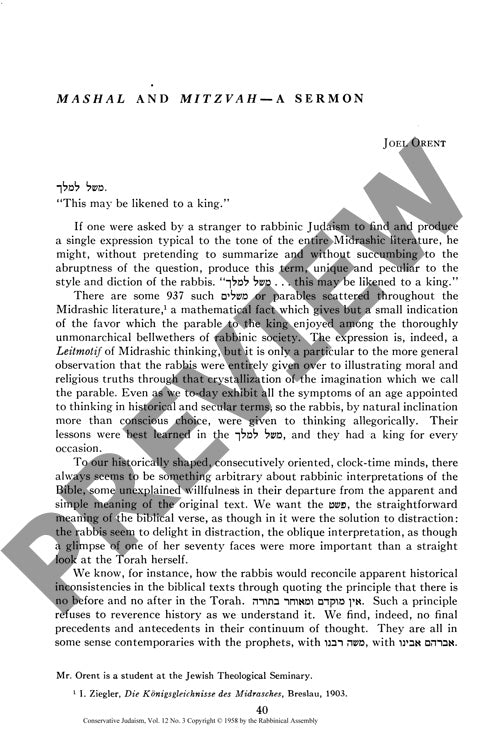Marshal and Mitzvah a Sermon
Couldn't load pickup availability
This theological treatise examines the function and significance of parables (mashal) in rabbinic literature, particularly the recurring motif "this may be likened to a king" (mashal l'melekh), which appears 937 times throughout Midrashic texts. The study employs comparative literary analysis, drawing upon rabbinic sources, modern literary theory through Kafka's work on parables, and contemporary Hebrew literature via S.Y. Agnon's narratives. The author argues that rabbinic allegorical thinking fundamentally differs from modern historical consciousness, as the rabbis operated within a suspended temporal framework where biblical figures remained contemporaneous. The methodology involves textual analysis of rabbinic hermeneutics, contrasting the peshat (literal meaning) with midrashic interpretation, and exploring the concept of holiness (kedushah) as manifested through commandment fulfillment (mitzvot). Key findings suggest that parables function as vehicles for immediate spiritual transformation, allowing listeners to transcend temporal limitations and achieve states of religious consciousness. The study concludes that following mitzvot enables individuals to embody divine commandments themselves, paralleling how engagement with parables transforms listeners into living parables. This research contributes to understanding the intersection between rabbinic hermeneutics, mystical experience, and religious praxis in Jewish thought, demonstrating how ancient allegorical methods address contemporary spiritual concerns.

More Information
-
Physical Description
-
Publication Information
Published 1958
ISBN
-
Publication Credits
Joel Orent

